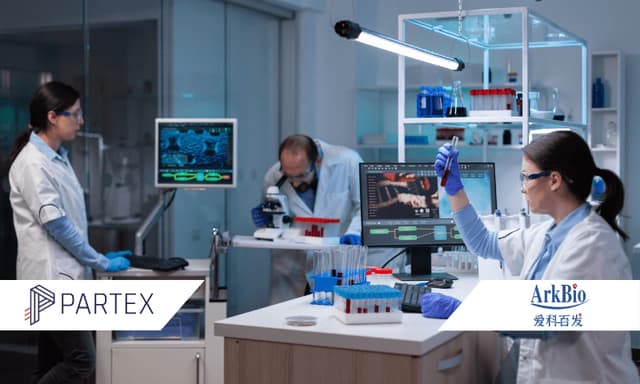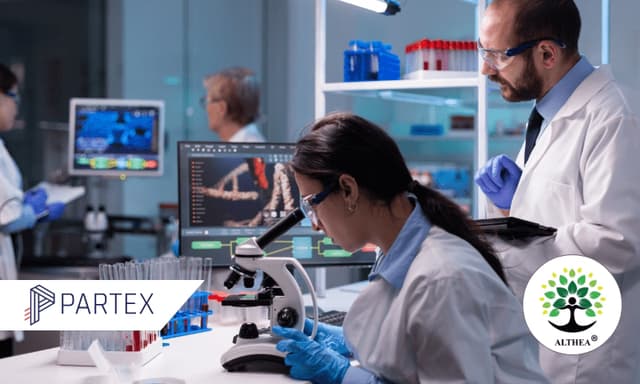As Kevin Rands, (a contributor at CIO.com) has stated in his blog “Data is the lifeline of any business”, and truly said, it remains the heart of businesses for life sciences and pharmaceutical industries. A lot still relies upon data while conducting research which is mostly done through traditional methods. As many top notch business persons and influencers of the industry quote the importance of data and real-time information, use of such tools to provide solutions to these problems is still missing in the industry. A recent wave of innovation in analyzing the data and patterns is gaining prominence with the industry veterans, to come up with better solutions that are disrupting the data and analytics services.
A new way for life sciences
Slacking off the old and traditional methods to artificial intelligence and machine learning techniques would save up lots of research time amongst the life science professionals. The kind of speed and thought provided by these advanced data analytics are making the traditional methods go obsolete.
In the same context, our CTO, Gaurav Tripathi explained to CIO that the industry was in need of “a transformation in the nature of their research through a more interdisciplinary approach. Researchers in the industry are moving away from an exclusive approach to data and toward a more open and scientific approach. This innovation is fueling a growing exchange of techniques and meshing of related technologies.”.
The integrated approach is being adopted and reinvented by tech organizations that are helping the industry in terms of data being more useful. Big data does little help when an organization doesn’t know what exactly can be done to make use of the data.
Intelligence Machines
The industries now vouch for increased access to valuable data that is automated at all steps of data solutions right from the collection of data, to curation to analysis. Mr Tripathi goes on to share “Sometimes it seems like in order to access any valuable data you have to be a data scientist. There is a disconnect between data experts and the subject matter experts that need the information”. Hence, there’s a lot of competition amongst data analytic firms to create better analytics through the use of AI and ML.
Search is not Research: Know the difference
For all research scientists or life science professionals looking to gain valuable insights from data, search engines and internal information put together can help them find their answers. These sort of data solutions are recommended and are adequate when the impact and the need for accuracy of data are minimalistic. But it may not be the case while you are researching for a treatment to a life-threatening disease, clinical research or a new scientific discovery, search engines like Google fall short of one’s research needs.
Tripathi explains “The key to success rests in crawling, curating and indexing hundreds of terabytes of scientific data across hundreds of clinical trial databases, biological databases, major patent offices, congresses, theses, forums and regulatory bodies”.
The veritable size of information dealt with in scenarios mentioned above makes it impossible to rely on mere search engine results. The need of the hour is the use of artificial intelligence to determine the relevancy and accuracy of information to any given research query. Tripathi further explains that AI and ML technologies are helping scientists and research institutes in finding treatments faster and helping them top notch their research methods overall.
Why it matters
With government organizations going public with data, allowing many health tech companies to help catalyze the data revolution has a greater impact on the data analysis. Though this has created a decentralized library of information, it has failed to offer updated research and latest industry developments.
Tripathi further emphasizes on how the use of machine learning and artificial intelligence over older archival or library systems, “Data and machine learning will dramatically reduce the time to market for new therapies, reduce the time and investment required for targeting rare diseases, enable precise and more personalized medicines, and automate key processes that will improve efficiency by orders of magnitude”.
The effective use of these techniques and technologies shall lead to new discoveries and improvements to current operations that would have otherwise remained undiscovered.

Frankfurt, Germany & Miami, FL, USA – March 17, 2025 – Partex NV and Fortress Biotech, Inc. (Nasdaq: FBIO) (“Fortress”), an innovative biopharmaceutical compan...

Frankfurt, Germany, 20th February, 2025 – Partex is pleased to announce a strategic collaboration with Princeton Drug Discovery Ltd (PDD), a leading biotech c...

Pune, [13-02-2025]: Pimpri Chinchwad University (PCU) reaffirmed its commitment to technological excellence and academic innovation by organizing a two -day Fac...

Pressemitteilung vom 08.01.2025 Die Amrit AG, ein Unternehmen der Partex Gruppe - einem führenden Anbieter von KI-Lösungen im Gesundheitswesen - gibt heute de...

Partnership aims to expand therapeutic potential of proprietary autotaxin inhibitor through AI-driven approach Frankfurt, Germany – Date – Partex, a leader in ...

Frankfurt, Germany, 3 rd June 2024, 9am CET Partex, a leading provider of AI-driven solutions in the pharmaceutical industry, is thrilled to announce i...

Frankfurt, Germany, 23 April 2024 – Partex, a leading provider of AI-driven solutions in the pharmaceutical industry, is thrilled to announce its partnership wi...

Frankfurt, Germany; 28 March 2024 – Partex Group, a pioneer in AI-driven drug discovery, announces a collaboration with Althea DRF Lifesciences, an established ...

During the German Cancer Congress 2024 in Berlin, the companies Innoplexus AG /Amrit AG, companies of Partex N.V., presented the results of a pilot project carr...

Frankfurt, Germany; 14 March 2024 Partex Group, a pioneer in AI-driven drug discovery, today announces a collaboration with global pharmaceutical giant Sanofi, ...


Innoplexus wins Horizon Interactive Gold Award for Curia App
Read More